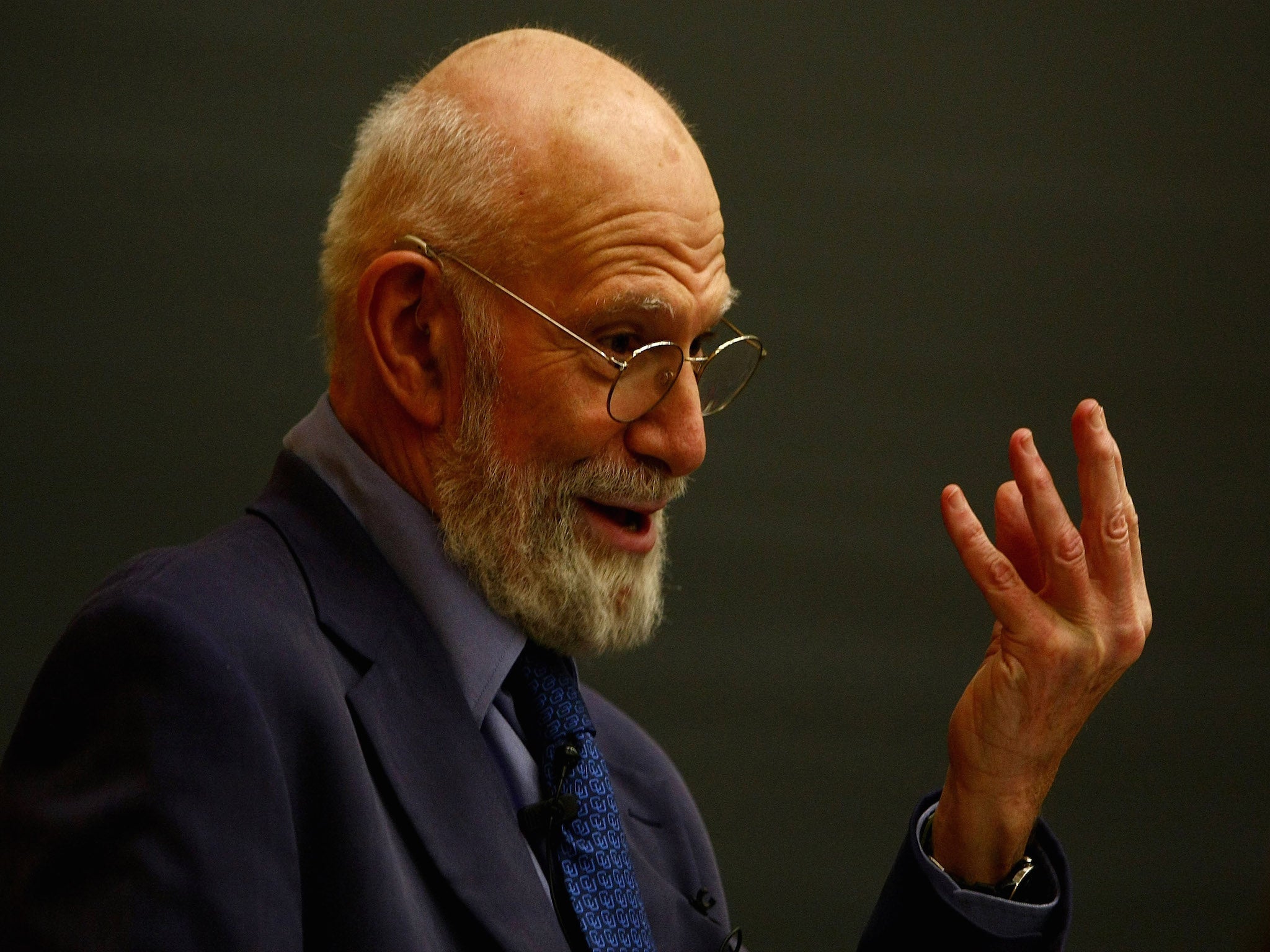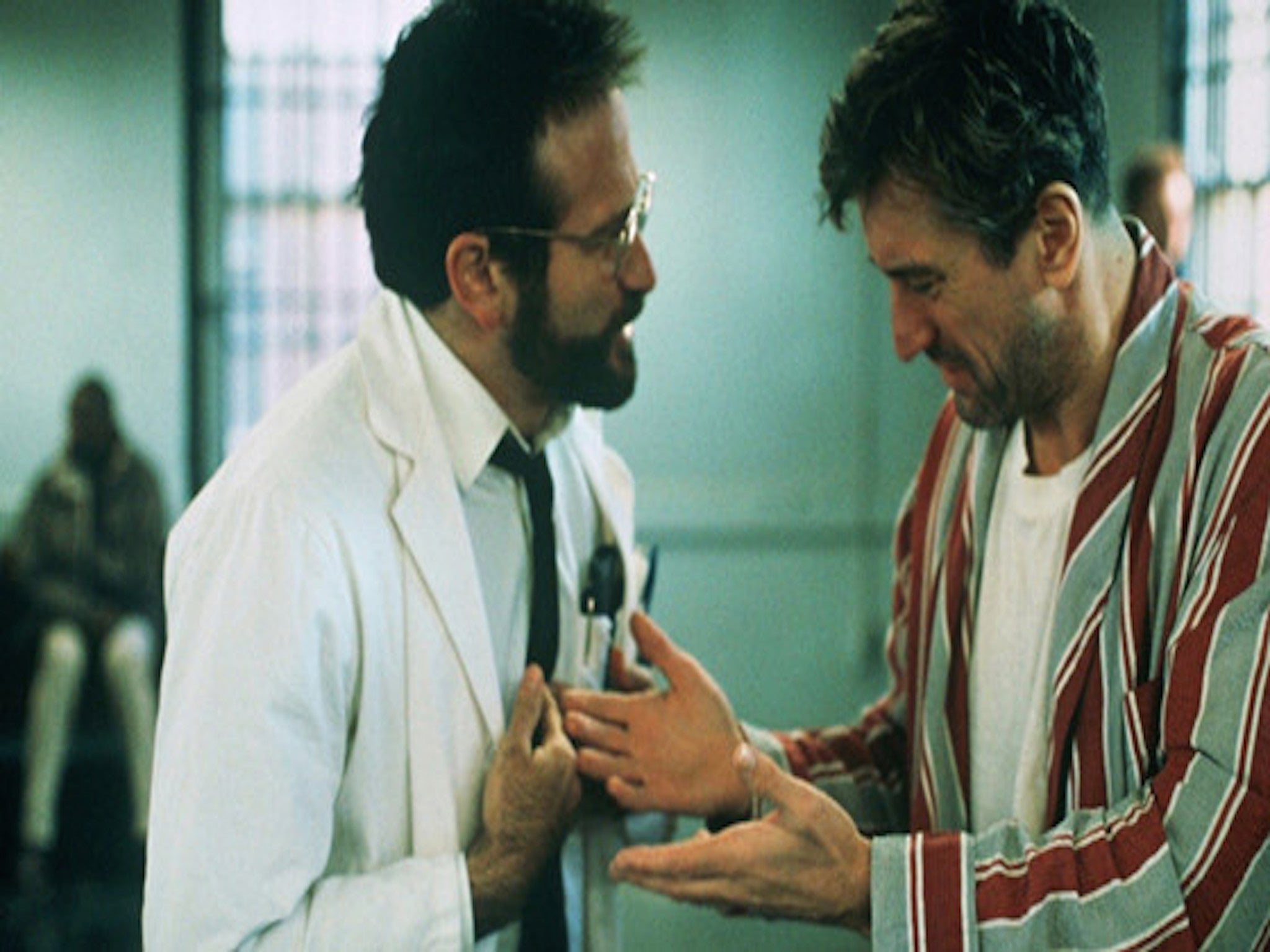Oliver Sacks: British-born science writer reveals he has terminal cancer
Says life has been an 'enormous privilege'

Your support helps us to tell the story
From reproductive rights to climate change to Big Tech, The Independent is on the ground when the story is developing. Whether it's investigating the financials of Elon Musk's pro-Trump PAC or producing our latest documentary, 'The A Word', which shines a light on the American women fighting for reproductive rights, we know how important it is to parse out the facts from the messaging.
At such a critical moment in US history, we need reporters on the ground. Your donation allows us to keep sending journalists to speak to both sides of the story.
The Independent is trusted by Americans across the entire political spectrum. And unlike many other quality news outlets, we choose not to lock Americans out of our reporting and analysis with paywalls. We believe quality journalism should be available to everyone, paid for by those who can afford it.
Your support makes all the difference.“A month ago, I felt that I was in good health, even robust health. But my luck has run out - a few weeks ago I learned that I have multiple metastases in the liver,” 81-year-old Oliver Sacks announced today.
"Now I am face to face with dying. The cancer occupies a third of my liver, and though its advance may be slowed, this particular sort of cancer cannot be halted.”
The British-born, New York-based writer and neurologist, is best known for his writing on science as well as his amateur dabbling in chemistry. His most famous book, Awakenings, about the Encephalitis lethargica epidemic of the 1920s, was subsequently turned into a film starring Robin Williams and Robert De Niro
An essay for his his 1995 collection An Anthropologist on Mars, won a Polk Awrd for magazine writng. He has also experimented heavily with various drugs and wrote a celebrated essay for the New Yorker magazine called Altered States.

‘To live on a day-to-day basis is insufficient for human beings,” he wrote in the article that described his various experiments while living in California’s Topanga Canyon. “We need to transcend, transport, escape; we need meaning, understanding, and explanation; we need to see over-all patterns in our lives. We need hope, the sense of a future.”
Mr Sacks revealed his diagnosis in an op-ed article in the New York Times. In it, he reflected that nine years ago he had discovered that he had a rare tumour of the eye - an ocular melanoma.
“Although the radiation and lasering to remove the tumour ultimately left me blind in that eye, only in very rare cases do such tumours metastasise. I am among the unlucky two per cent,” wrote Mr Sacks, whose holds the positions of Professor of Neurology at New York University School of Medicine.
The announcement sparked an outpouring of regret on social media.
Mr Sacks, who has never married and who has described himself as celibate, said that over the last 15 years he had published five books, completed an autobiography that is to be published later this year and had nearly finished several others.
“This does not mean I am finished with life,” he wrote: “On the contrary, I feel intensely alive, and I want and hope in the time that remains to deepen my friendships, to say farewell to those I love, to write more, to travel if I have the strength, to achieve new levels of understanding and insight.”
He added: “Above all, I have been a sentient being, a thinking animal, on this beautiful planet, and that in itself has been an enormous privilege and adventure.”
Join our commenting forum
Join thought-provoking conversations, follow other Independent readers and see their replies
Comments